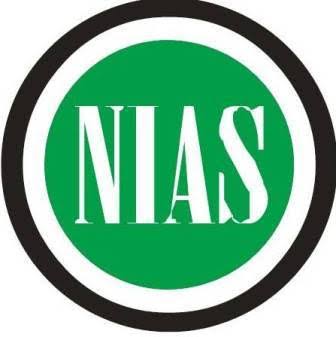Local Breed Development is Key, not mere interventions – NIAS speaks on Dairy Production

Victoria Ogunrinde
The Registrar and Chief Executive Officer, Nigerian Institute of Animal Science (NIAS), Prof. Eustace Iyayi on Tuesday advocated for the development of local dairy breeds that has high milk yeilding capacity potential to boost dairy production in the country and reduce importation.
Iyayi while speaking in Abuja at a press conference noted that if local breeds are not developed, all intervention measures are just mere and will remain without lasting results.
“There is a big shortfall between what is needed in the country and what is produced, we need about 1.6 million metric tonnes of milk and we can only produce about 600 metric tonnes, so the difference has to come in through importation.
Read Also: Food Blockade: Gani Adams wants SW governors to allocate 15% of budget to agric
“This is huge, though CBN has tried to intervene and of course we know this is going to take a long time to develop because what is happening now is that in most cases, we are just using artificial insemination to upgrade the milk production capacity of local breed in a short run.
“But in a long run, what we have been advocating as an institute is that we need to develop our local breed that has had high milk yielding capacity potential.
“That’s the only way to go, though it can take about 10-15 years down the line but we need to start, if we do not develop our breeds that have high yield, all these intervention measures are just what they are, mere interventions that will not be long lasting so the way out is to have a long reach planning”.
Read Also: FG to Prevent Spread of Animal Health Diseases in Nigeria
According to Iyayi, the Nigerian Poultry Industry contributes about 25% to the agricultural Gross Domestic Product (GDP) and has the largest annual egg production of 650 metric tonnes and second largest poultry production of 180 million birds in Africa.
He also stated that in order to reduce food import bill, there is need to increase production and improve the agriculture value chain which is about #85 billion that is so underdeveloped and only 6% of the development in the agric value chain is being harnessed while others lack attention.
Iyayi explained that “the country has to be aware of this and the institute has been sticking out it’s neck in this direction, “we need to do something busy to reduce our food import bill”.
Meanwhile, Iyayi noted that the impact of the COVID-19 pandemic in the dairy industry has been phenomenal with steep losses reported by farmers, whilst the feed sector has not also been spared as two essential ingredients, maize and soyabean whose cultivation and importation reduced drastically, further compounding the problem of the industry.

